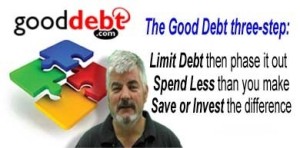 Jon Hanson is a new guest blogger for It’s Your Money.
Jon Hanson is a new guest blogger for It’s Your Money.
Uncle Sam wants you! To have an IRA! Proposed in President Obama’s 2010 budget is a provision for automatic enrollment of employees in IRA’s for employers that do not offer traditional 401K plans.
The good:
- It encourages savings, and even though you can opt out,few will. Jennifer Monnin of Nationwide Insurance, at an October 2008 National Savings Forum I attended in D. C. for America Saves, says 95 percent of Nationwide employees do not opt out of their auto 401K.
- Cutting edge employers could add educational opportunities to the program and increase employee loyalty and stability. Employees with a financial plan and goals are less stressed and more productive.
- Employers with less than 10 employees would be exempt and employees that earn under $5,000 a year would not be counted, according to Stephen Miller of SHRM.
The bad:
- The matching contribution by the government is simply forced redistribution of taxpayers’ money. I would like to see the match be voluntary and by the employer.
- If you do not initiate the savings, will you learn anything?
- It could be a burden on employers: more burden, less jobs.
The New York Times offered this explanation of the government matching funds, “For households that earn under $65,000, the federal government will match savings up to $1,000 a year with a 50 percent tax credit. So if you saved $500, you would get $250 dropped directly into your I.R.A. This tax credit is refundable, which means you would get it regardless of how much you pay in federal taxes each year. The credit would phase out between $65,000 and $85,000 of household income or half of that if you are single.”
It takes legislation to bring it to reality: Read more: Automatic IRA Act of 2007 not final versions (S. �1141 �& H.R �2167). Other: CFED, Brookings, Heritage
Jon Hanson is the author Good Debt, Bad Debt and Gooddebt.com
A Best Bet Self-Improvement Book “… bracing, snappily written.”
– People Magazine
























